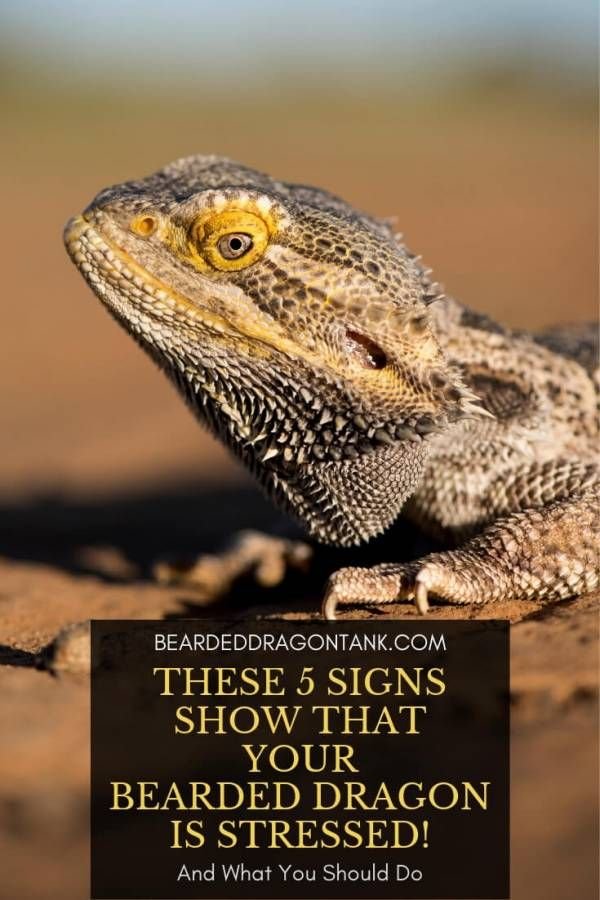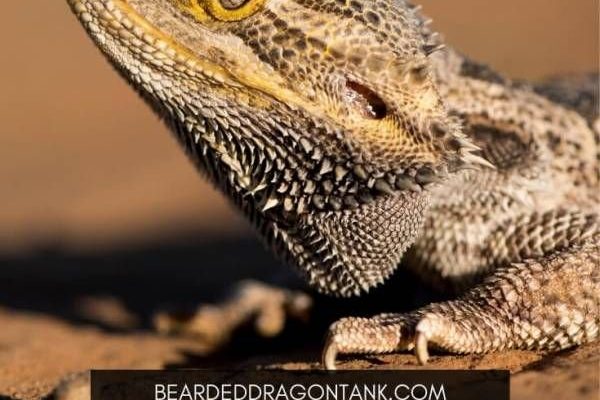
Stress can affect their health and happiness, just like it can for humans. So, let’s break down the signs of stress in bearded dragons and look at practical ways to help them chill out. You might be surprised by how small changes in their environment can make a big difference.
Recognizing Stress Signs in Bearded Dragons
Knowing how your bearded dragon shows stress is the first step. They can’t tell you what’s wrong, so you need to look for changes in their behavior. Here are some common signs:
- Black Beard: One of the most common signs is a darkening of the beard. If you see this, it’s a signal that something’s bothering them.
- Hiding: If your dragon suddenly prefers to stay hidden rather than basking or exploring, it may be feeling stressed.
- Decreased Appetite: A stressed bearded dragon may lose interest in food. If they skip meals, it’s time to investigate.
- Rapid Breathing: Watch for their breathing to speed up or become more shallow—it can indicate anxiety or fear.
If you notice any of these behaviors, don’t panic right away. Stress is normal, and identifying it is the first step in creating a more comfortable environment.
Common Causes of Stress in Bearded Dragons
Understanding why your bearded dragon is stressed can help you reduce it. Here are some common culprits:
- Environmental Factors: Changes in temperature, humidity, or lighting can stress out your pet. For instance, a too-cold basking spot can make them uncomfortable.
- Loud Noises: Just like us, bearded dragons don’t appreciate loud, unexpected sounds. If your dragon’s habitat is near a busy area, they might feel on edge.
- Companions: Bearded dragons are solitary creatures. If they’re housed with other reptiles or pets, they might feel threatened.
- Health Issues: Sometimes, stress can stem from health problems. Regular check-ups can help catch any underlying issues.
Here’s the thing: being observant and making small changes in your dragon’s environment can go a long way. Pay attention to their body language and the conditions in their habitat.
How to Create a Stress-Free Habitat
Now that we’ve looked at stress signs and triggers, let’s dive into creating a stress-free environment for your bearded dragon.
1. Temperature Control: Bearded dragons require specific temperature gradients in their tanks. Make sure they have a warm basking spot (around 95°F) and a cooler area (around 75°F) to retreat to.
2. Proper Lighting: UVB lighting is crucial for their health. Ensure your dragon gets the right amount of exposure, typically around 10-12 hours a day.
3. Hiding Spots: Providing places to hide, like caves or logs, can help them feel secure. Bearded dragons often seek out these spots when they feel threatened.
4. Cleanliness: Maintain a clean habitat to prevent stress. Regularly clean their enclosure to remove waste and uneaten food. A tidy environment can help your dragon feel more at home.
By focusing on these aspects, you can significantly improve your bearded dragon’s comfort and happiness.
Handling Your Bearded Dragon with Care
How you interact with your bearded dragon can also influence its stress levels. Here’s what to keep in mind:
- Gentle Handling: Always approach your dragon slowly. Sudden movements or loud noises can startle them.
- Short Sessions: Keep handling sessions short, especially at first. Gradually increase the time as they become more comfortable with you.
- Respect Their Space: If your dragon is hiding or acting skittish, give them some space. Let them come to you instead of forcing interaction.
Let me explain: building trust takes time, just like any relationship. The more calmly you handle your bearded dragon, the more relaxed they’ll become.
Diet and Stress Levels
You might be surprised at how much diet can impact stress levels in bearded dragons. An improper diet can lead to health issues, which in turn can stress them out. Here are some tips for maintaining a healthy diet:
1. Variety is Key: Offer a mix of leafy greens, vegetables, and insects. This ensures they get a balanced diet and keeps mealtime exciting.
2. Stay Fresh: Always provide fresh food. Wilted or spoiled food can lead to health problems, increasing stress.
3. Observe Eating Habits: If your dragon shows any decrease in appetite, check their food and overall environment. Adjustments might be necessary.
4. Hydration Matters: Make sure your dragon has access to clean water. Dehydration can lead to stress and health issues.
Nutrition plays a crucial role in your dragon’s overall well-being, so make sure they’re getting the best!
When to Seek Professional Help
Sometimes, despite your best efforts, stress can persist. Here are some signs it might be time to consult a vet:
- Prolonged Stress Signs: If you notice signs of stress lasting more than a few days, it’s worth getting a professional opinion.
- Physical Symptoms: Weight loss, lethargy, or unusual behavior can indicate underlying health problems.
- Behavioral Changes: Sudden or drastic changes in behavior often call for a vet’s insight.
Don’t hesitate to reach out to a vet who specializes in exotic pets. Their expertise can help guide you through any issues.
Taking care of a bearded dragon can be incredibly rewarding, but it comes with its challenges. By understanding the signs of stress and making some thoughtful changes, you can create a happy home for your scaly friend. Remember, it’s all about observation and responding to their needs. By creating a comfortable environment, handling them with care, and ensuring proper nutrition, you can significantly reduce their stress levels.
So next time you notice your bearded dragon’s beard darkening, or they seem a little off, don’t stress—it’s a chance to learn what they need to feel secure and healthy. Just like in any relationship, communication and attention are key. Your bearded dragon will appreciate the effort, and it’ll make for a happier dragon and pet owner alike!

